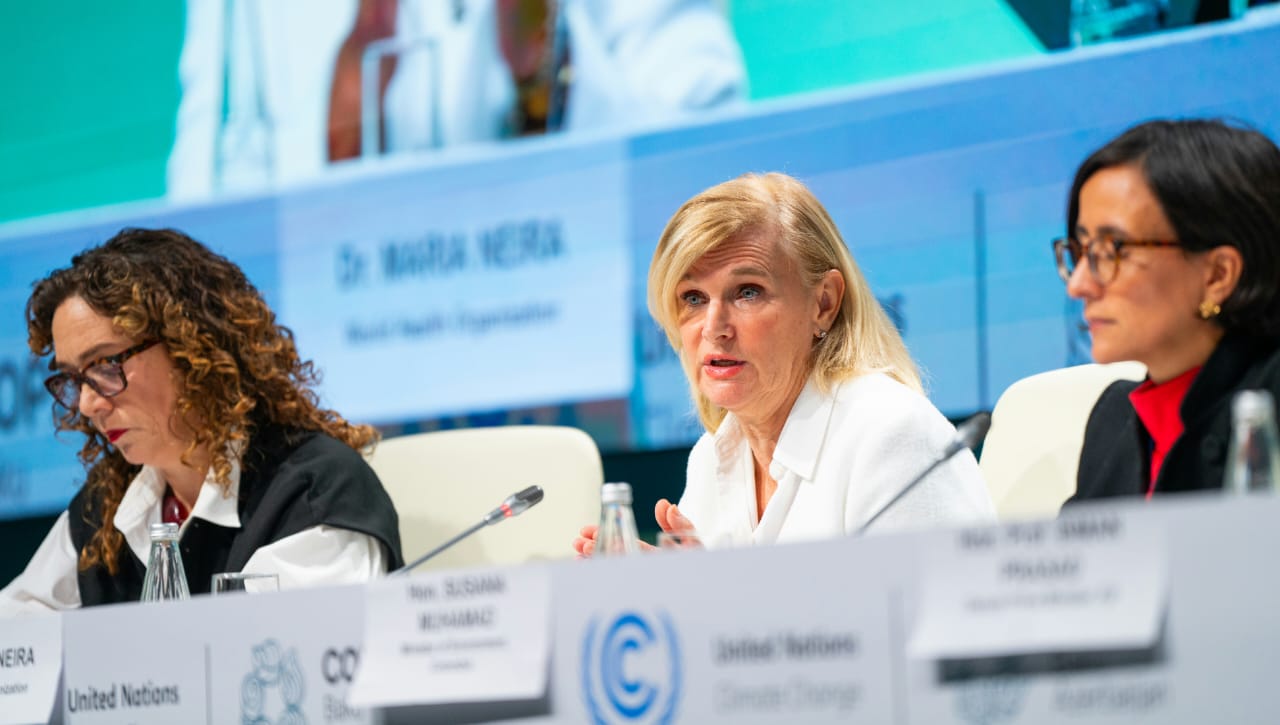

The quality of air people breathe across the world is compromised and responsible for over seven million deaths.
This was revealed by the World Health Organization on Saturday at the ongoing climate change talks in Baku, Azerbaijan.
WHO Director of the Department of Public Health and Environment Dr Maria Neira said people in some parts of the world breathe air with 400 micrograms per cubic meter of particulate matter 2.5.
“The climate crisis is nothing else than the health crisis as well, and it is affecting our health in a very serious and dramatic way. And the cost of this climate crisis is already paid by our lives. Sometimes, in these discussions around climate change, people ask us to visualize a little bit more and understand what is the face of the climate crisis,” Neira said.
Neira made her remarks on Saturday in Azerbaijan during a press conference organized to showcase efforts aimed at showing countries that have shown interest in joining negotiations on fossil fuel treaties.
On Thursday, states endorsing the proposal for a fossil fuel non-proliferation treaty held a second ministerial meeting at Baku.
A cross-section of ministers and senior government officials from the Pacific, South Asia, Africa, Latin America and the Caribbean discussed key priorities for advancing the treaty imitative, including proposed legal pathways and mechanisms for financing just transition.
Neira said the face of the climate crisis is the fact that every year, there are seven million deaths caused by exposure to polluted air.
Particulate matter is a common proxy indicator for air pollution.
The major components of particulate matter are sulfates, nitrates, ammonia, sodium chloride, black carbon, mineral dust and water.
Neira said fossil fuels which are responsible for global warming are also responsible for fueling the health crisis.
She said the lungs of the people are being affected by the air they breathe.
“I wanted to share with you the fact that at the moment we are talking here, and maybe this explains a little bit more why we are so concerned some people in one place in the world are breathing air with 400 micrograms per cubic meter of particulate matter 2.5 which is a particulate matter that the toxicity that is going to our lungs.”
Neira said the WHO recommends five micrograms per cubic meter.
She said the levels in Azerbaijan are 170 micrograms per cubic meter.
Chair and founder of fossil fuel non-proliferation treaty initiative Tzeporah Berman said fossil fuels are not only a climate risk, but also a health security and economic risk and a risk to human rights, fueling deadly air pollution, biodiversity crisis, wars and conflict, undermining the Sustainable Development Goals.
“Globally, we're clear on the solution, the need to phase out oil, gas and coal, the substance is responsible for 86% of the emissions trapped in our atmosphere today. At COP 28 last year, the need to transition away from fossil fuels was finally recognized in the climate talks, and this commitment was further solidified in the pact for the future in New York in September 2024 yet finance remains the leading barrier to a just transition without adequate funding, low income and climate vulnerable countries cannot shift away from fossil fuels or build the resilience needed to face escalating climate impacts,” she said.
Fiji Deputy Prime Minister Biman Prasad said his country will continue to advocate for a fair, fast, and finance-driven transition from fossil fuels as part of its fight for climate justice



 © The Star 2024. All rights reserved
© The Star 2024. All rights reserved